Lawmakers on Taxes, CHIPS, Trade and Workforce
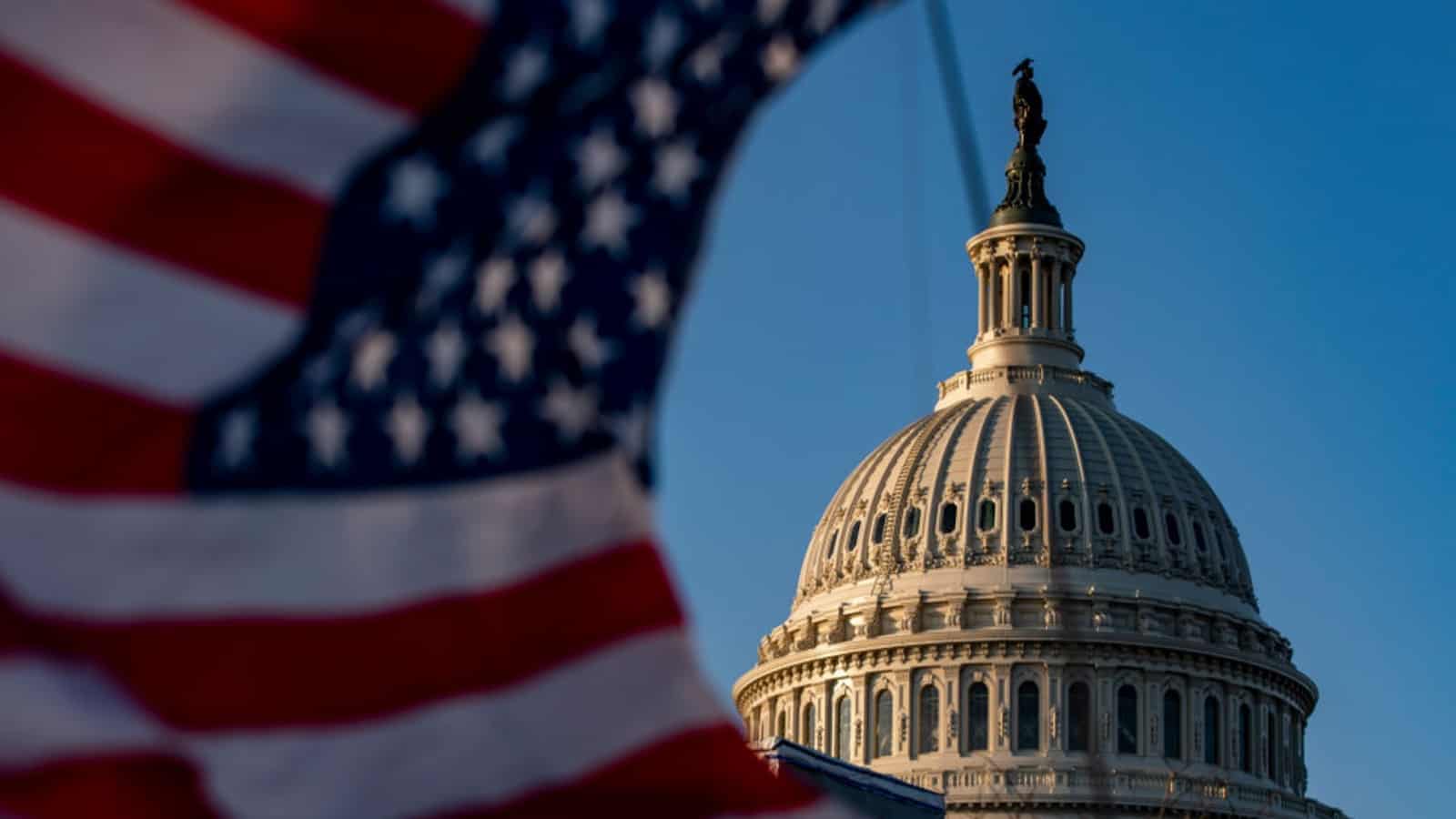
A day after President Donald Trump’s first address to Congress in his second term, the industry remains on edge amid the growing uncertainty of what’s being called a trade war by some in Washington.
What Congress is saying: We’re starting to see public comments from members of Congress on various topics in the president’s speech on Tuesday. Here’s what they’re saying.
Tax reform: House Ways and Means Committee Chairman Jason Smith (R-MO) committed yesterday to delivering a comprehensive tax bill to President Trump by Memorial Day, according to MarketWatch. Echoing NAM President and CEO Jay Timmons’ repeated calls for a swift tax deal, Chairman Smith emphasized the urgency of providing certainty to small businesses and working families, stating, “Failure is not an option.”
- “[W]e have to move this one big, beautiful bill as quickly as possible,” he said.
- In recent weeks, Timmons has leveraged the NAM’s public platform extensively—including through the NAM State of Manufacturing Address, television and radio interviews across the country, social media and op-eds in Ohio and Florida—to press Congress to act now and make the 2017 tax reforms permanent.
CHIPS: New Sen. Jon Husted (R-OH), the former lieutenant governor of the state, expressed support for the CHIPS and Science Act, emphasizing its bipartisan backing and importance of national security. “For the economic and national security of America, we need to make chips in the USA—I believe this is part of an America First agenda,” he wrote in a statement provided to The Columbus Dispatch.
- House Speaker Mike Johnson (R-LA) indicated to Punchbowl that nothing would be discussed on the CHIPS and Science Act until the president’s FY 26 budget.
- Sen. Todd Young (R-IN) said that the president’s mention of the act in his speech was “not consistent with the extensive conversations we’ve had with the administration about the many successes and future of the CHIPS program and how it helps with our shared goal of creating a robust domestic chips supply.”
Trade and workforce: “As I’ve said, tariffs are a tool in the toolbox, but they must be strategic and support American jobs—not create uncertainty that undercuts our domestic manufacturing,” Rep. Debbie Dingell (R-MI) told the Detroit Free Press. “The domestic auto industry currently relies on an integrated North American supply chain, and our trade policies need to reflect that.”
- Sen. Thom Tillis (R-NC) zeroed in on implementation of any tariffs. “If you’re talking about tariffs that are going to be inflationary, causing all kinds of retaliation and disrupting the markets, I’m almost certainly against them,” he said in an interview with CQ Roll Call. “However, if you’re talking about tariffs that are used surgically … to be used judiciously and to build the economy, then I’m all for it.”
- For Sen. Kevin Cramer (R-ND), according to The Wall Street Journal (subscription), “It comes down to how long [the tariffs] would last.” He said you “can’t simply turn on and off an inflationary switch” or flip a switch to build manufacturing facilities in the U.S., “or even harder yet, get the workforce to fill those jobs that would be created, particularly at the same time as you’re shirking immigration.”
Big picture: “Manufacturers are already planning for 2026, and they need the certainty to invest and grow now. We’re seeing bipartisan interest in these priorities, and the NAM is building consensus to achieve exactly that and have even stronger champions for manufacturers in Congress to reinforce what we need to compete and win,” said NAM Executive Vice President Erin Streeter.
NAM, Allies: Reject Reintroduced PRO-Act

The Richard L. Trumka Protecting the Right to Organize Act, reintroduced this week, would harm manufacturers and their employees alike if it passes, the NAM and allied organizations told the Senate Tuesday.
What’s going on: The PRO Act, reintroduced Wednesday by Sen. Bernie Sanders (I-VT) and Rep. Bobby Scott (D-VA), purports to broaden labor protections for workers.
- In truth, however, it “would limit workers’ right to secret ballot union representation elections, allow government bureaucrats to unilaterally impose contracts on the private sector, trample free speech and debate, jeopardize industrial stability and limit opportunities for small businesses and entrepreneurs,” according to the Coalition for a Democratic Workplace, a group of organizations representing employers and employees. The NAM is a member.
Why it’s a problem: “The PRO Act is designed to push union representation on workers whether they want it or not,” the coalition said. The legislation would do this by:
- Limiting the right of employees to vote for or against union representation via secret ballot, instead instituting “card check”;
- Limiting employees’ right to free speech, effectively silencing debate;
- Giving the government unprecedented control over private-sector employment contracts;
- Requiring employers to give union organizers employees’ personal information without the employees’ consent;
- Eliminating right-to-work protections nationwide; and
- Allowing unions to choose a bargaining unit that maximizes its chances of winning an election instead of having the National Labor Relations Board choose a unit fairly.
The “ABC test”: In addition, the PRO Act would limit people’s opportunities for self-employment by imposing California’s failed “ABC test” on workers to determine whether they are independent contractors or employees.
- “The ABC test makes it very difficult for someone to work as an independent contractor by defining the term ‘employee’ very broadly,” the groups told the Senate. “Nationwide implementation would forcibly reclassify millions of workers who routinely say they do not want a traditional employee relationship and prize the flexibility and autonomy independent contracting provides.”
Joint employment: The measure would also replace the existing standard for determining who is a “joint employer” under federal labor law with a much broader, more vague definition.
- “The current standard focuses on whether the potential employers have direct and immediate control over employees. The PRO Act standard, on the other hand, would establish joint employment liability based on indirect or even just reserved control.”
- “It would overturn decades of established labor law and undermine nearly every contractual relationship, from the franchise model to those between contractors and subcontractors and suppliers and vendors.”
The economic impact: The PRO Act would be economically devastating to companies, workers and the country, the coalition said.
- The measure’s independent worker classification alone could cost up to $57 billion nationwide, while its joint-employer standard would cost franchises as much as $33.3 billion annually.
- This would mean more than 350,000 job losses and a 93% spike in lawsuits.
President Trump Cements Tariffs as a Fixture of Trade Policy
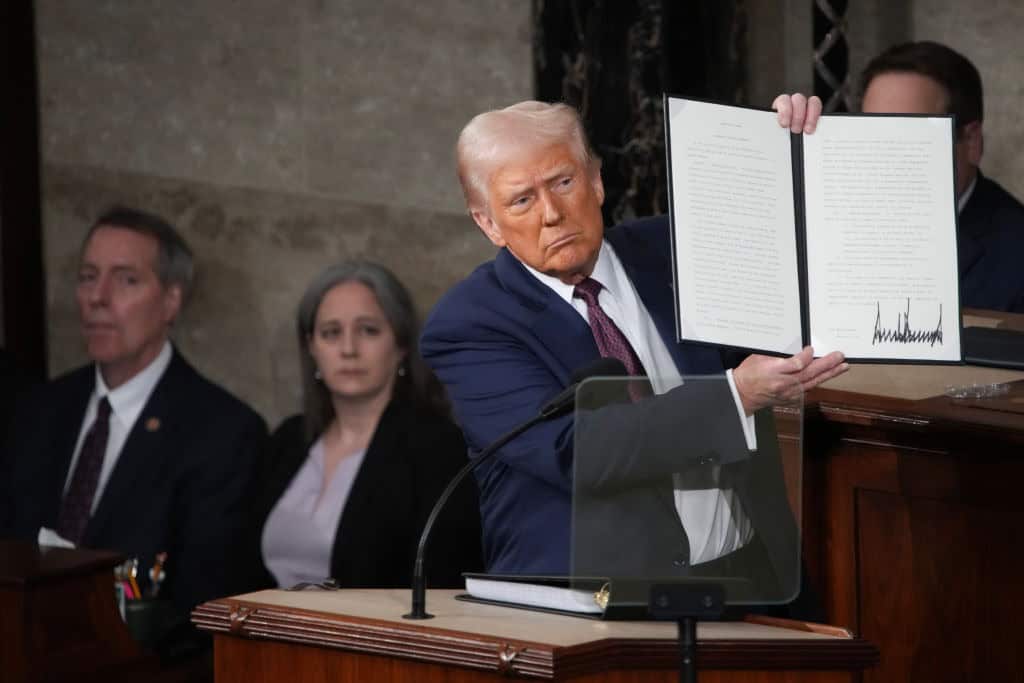
In his first address to Congress in his second term, President Trump made it clear that tariffs are not just a temporary tool, but a fixture of his administration’s trade policy. The president discussed his vision for an “America First” strategy, which includes the tariffs that went into effect Tuesday and last month.
In his words: “Deals are being made,” he said. “That’s a combination of the election win and tariffs. It’s a beautiful word, isn’t it?”
- “If you don’t make your product in America … you will pay a tariff and, in some cases, a rather large one. Other countries have used tariffs against us for decades, and now it’s our turn to start using them against those other countries.”
- “On average [according to the president], the European Union, China, Brazil, India, Mexico and Canada … and countless other nations charge us tremendously higher tariffs than we charge them. It’s very unfair.”
- “[On April 2,] reciprocal tariffs kick in, and whatever they tariff us, other countries, we will tariff them…If they do nonmonetary tariffs to keep us out of their market, then we will do nonmonetary barriers to keep them out of our market.”
On Canada and Mexico: “[W]e have very large deficits with both of them. … We pay subsidies to Canada and to Mexico of hundreds of billions of dollars. And the United States will not be doing that any longer. We are not going to do it any longer.”
- “Tariffs are about making America rich again and making America great again, and it is happening, and it will happen rather quickly. There will be a little disturbance, but we are OK with that.”
The NAM’s take: Ahead of the speech, NAM President and CEO Jay Timmons pointed out in a statement that manufacturers—especially those with thin margins—are already feeling the pressure from new tariffs. “The stakes couldn’t be higher for manufacturers right now,” he said. The NAM highlighted some examples after the tariffs went into effect yesterday from both small and large manufacturers:
- A power-engineering manufacturer faces $25 million in additional costs from the Mexico tariffs alone, impacting the ability to supply U.S. utilities and industrial customers.
- A major consumer goods manufacturer is looking at $231 million new costs from tariffs from Mexico and Canada.
- A small copper manufacturer was forced to turn back 388,000 pounds of copper at the Canadian border when tariffs took effect, with future imports costing an extra $50,000 per truckload.
Comprehensive manufacturing strategy: “To mitigate the adverse effects of today’s tariffs,” Timmons said, “President Trump and Congress [need] to implement a comprehensive manufacturing strategy that would create predictability and certainty to invest, plan and hire.”
- That strategy should include making President Trump’s 2017 tax reforms permanent and more competitive, securing regulatory certainty, expediting permitting reform to unleash American energy dominance and key manufacturing projects, increasing the talent pool and implementing a commonsense trade policy, Timmons added.
- In recent weeks, including with the NAM State of Manufacturing Address, Timmons has been raising the alarm on the need to move now on preserving and extending the 2017 tax reforms in the face of the uncertainty and price pressures.
The bottom line: “Building things in America only works if we can sell them around the world,” said Timmons. He added this morning: “That’s why we’re urging President Trump and Congress to provide greater predictability with a phase-in period for manufacturers to adjust to new trade realities, while also establishing clear exemptions for critical inputs, enabling reciprocity in manufacturing trade.”
- “President Trump can make American manufacturing greater than ever before by negotiating a ‘zero for zero’ tariffs manufacturing trade deal with our major trading partners,” Timmons said.
Developing: This morning on Bloomberg TV, Commerce Secretary Howard Lutnick hinted publicly that he has heard the NAM and the industry’s urging for relief from tariffs on Canadian and Mexican imports for products that comply with the U.S.–Mexico–Canada Agreement—a signature achievement of President Trump’s first term.
President Trump Doubles Down on Tax Reform
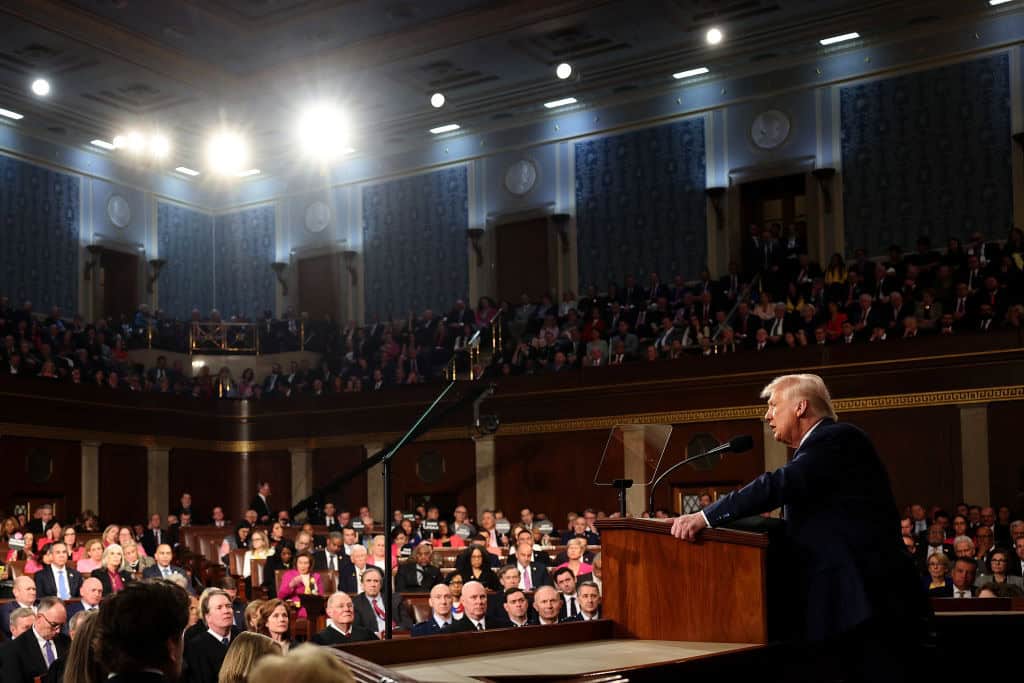
“[T]he next phase of our plan to deliver the greatest economy is for this Congress to pass tax cuts for everybody,” President Trump said last night, reiterating the importance of this key manufacturing policy priority. “They’re in there. They’re waiting for you to vote,” he said.
The urgency: Even before price pressures from tariffs, the NAM’s study with EY showed that failing to act now could cost the U.S. 6 million jobs—including more than 1.1 million in manufacturing.
- In addition, approximately $540 billion in employee wages will be lost, and U.S. GDP will be reduced by $1.1 trillion.
The NAM says: “When President Trump signed these tax cuts into law, it was rocket fuel for manufacturing in America and made the U.S. economy more competitive on a global scale,” said Timmons last night. “That fuel is about to run out as key provisions have expired, and others are about to lapse. …We must ensure these historic, pro-growth manufacturing provisions are made permanent and even more competitive so manufacturers can plan, grow and succeed.”
- “Manufacturers need a deal now as they make decisions for investments in 2026 and beyond,” NAM Executive Vice President Erin Streeter said. “Every day we delay costs investments, jobs and opportunity.”
Making the case: Since igniting the sprint toward a tax deal with House Speaker Mike Johnson (R-LA), House Majority Leader Steve Scalise (R-LA), House Ways and Means Committee Chairman Jason Smith (R-MO) and Senate Finance Committee Chairman Mike Crapo (R-ID) at the Capitol in January, the NAM has kept the pressure on lawmakers.
- Yesterday during the president’s address to Congress, the NAM leveraged a new tax ad, “When Manufacturing Wins, America Wins,” to amplify its message even further.
DOJ Ramps Up Workplace Immigration Enforcement

Federal prosecutors have been ordered to prioritize the prosecution of “immigration-related violations,” according to a recent memo from U.S. Attorney General Pam Bondi to all Justice Department employees.
What’s going on: The memo, sent Feb. 5, tasks U.S. Attorneys’ Offices across the U.S. with using “all available criminal statutes to combat the flood of illegal immigration … and to continue to support the Department of Homeland Security’s immigration and removal initiatives.” The offices are also required to track and report immigration-related cases and convictions.
What it means: Under the new policy, employers that knowingly hire foreign workers who lack work authorization will face heightened risks of criminal prosecution.
- There will also be more criminal investigations into employers found to have committed workplace immigration violations, even unintentional ones.
- Companies that have a history of noncompliance will be prioritized for enforcement actions.
- The federal government will lean on state and local authorities to investigate and pursue immigration-related violations. Those that obstruct investigation efforts (which can include simply failing to comply or cooperate) could face criminal charges.
- Prosecution will not be limited to large companies.
Dive deeper: Read our partner law firm Fisher Phillips’ top five takeaways from the DOJ memo.
Manufacturers to Trump and Congress: Act Now on Comprehensive, Commonsense Manufacturing Strategy as Tariffs Hit Manufacturing Industry
National Association of Manufacturers President and CEO Jay Timmons released the following statement ahead of President Donald Trump’s address to a joint session of Congress:
“The stakes couldn’t be higher for manufacturers right now. Many manufacturers are operating on thin margins, and the tariffs imposed today will further strain their resources. For example:
- A large manufacturer in the power-engineering sector that imports more than $100 million every year in components and products from Mexico now faces increasing costs of $25 million due to the tariffs. As a major supplier to the U.S. utility and industrial market, this will directly impact the ability for domestic utilities and industrial customers to maintain a safe, efficient and secure power grid.
- Another large consumer goods manufacturer indicated the tariffs on Mexico will cost their company $200 million, and the Canadian retaliatory tariffs will add another $31 million—totaling $231 million, or $1.15 million per day.
- A small copper manufacturer had nine truckloads of copper rod sitting at the Canadian border waiting to go through Customs when the tariffs went into effect, leading to 388,000 pounds of copper goods being returned to the supplier. If the tariffs remain in effect, bringing copper—a critical manufacturing input—into the U.S. would cost the manufacturer nearly $50,000 per truckload going forward.
“To mitigate the adverse effects of today’s tariffs, manufacturers call on President Trump and Congress to implement a comprehensive manufacturing strategy that would create predictability and certainty to invest, plan and hire in America. This strategy includes the following actions:
- Make President Trump’s 2017 tax reforms permanent and more competitive now. When President Trump signed these tax cuts into law, it was rocket fuel for manufacturing in America and made the U.S. economy more competitive on a global scale. That fuel is about to run out as key provisions have expired, and others are about to lapse. If Congress fails to act, it will cost America 6 million jobs, including more than 1.1 million manufacturing jobs. We must ensure these historic, pro-growth manufacturing provisions are made permanent and even more competitive so manufacturers can plan, grow and succeed.
- Restore regulatory certainty. Manufacturers are spending $350 billion each year just to comply with regulations—money that could be spent on expanding factories and production lines, hiring new workers or raising wages. President Trump has taken action already to streamline burdensome regulations starting with lifting the liquefied natural gas export ban, but we need to move faster to deliver on our industry’s potential.
- Expedite permitting reform to unleash American energy. President Trump is already ending the war on America’s energy producers, but there is more work to do. America should be the undisputed leader in energy production and innovation, but we will not reach our full potential without permitting reform. We are seeing opportunities for energy dominance fade in the face of a permitting process that takes 80% longer than other major, developed nations.
- Strengthen the manufacturing workforce. Over the past year, we have averaged 500,000 open manufacturing jobs in America—well-paying, life-changing careers. Manufacturers are struggling to fill critical jobs. We need a real workforce strategy that ensures we have the talent to grow, compete and lead.
- Implement commonsense trade policies that open global markets fairly and effectively. Building things in America only works if we can sell them around the world. That’s why we’re urging President Trump and Congress to provide greater predictability and a clear runway for manufacturers to adjust to new trade realities, while also making way for exemptions for critical inputs, enabling reciprocity in manufacturing trade.
“Manufacturers are investing in America in record numbers, and President Trump is focused on strengthening manufacturing in the United States to grow our nation’s economy. We look forward to working with President Trump as he works to advance policies that will help manufacturers thrive and prosper because when manufacturing wins, America wins.”
-NAM-
The National Association of Manufacturers is the largest manufacturing association in the United States, representing small and large manufacturers in every industrial sector and in all 50 states. Manufacturing employs nearly 13 million men and women, contributes $2.93 trillion to the U.S. economy annually and accounts for 53% of private-sector research and development. The NAM is the powerful voice of the manufacturing community and the leading advocate for a policy agenda that helps manufacturers compete in the global economy and create jobs across the United States. For more information about the NAM or to follow us on Twitter and Facebook, please visit www.nam.org.
Lilly: 2017 Tax Reform Makes Four New U.S. Manufacturing Sites Possible
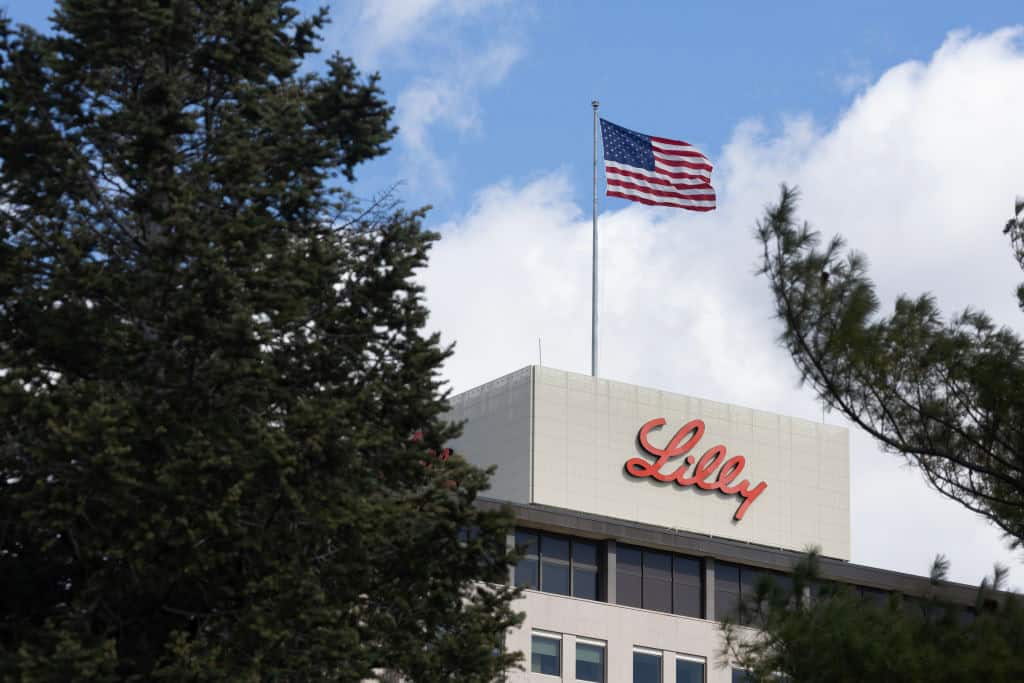
Biopharmaceutical company Lilly will build four new manufacturing sites across the U.S., it announced Wednesday at a Washington, D.C., press conference. The event was attended by NAM President and CEO Jay Timmons, Commerce Secretary Howard Lutnick, National Economic Council Director Kevin Hassett, Indiana Sen. Todd Young and Lilly Executive Vice President and President of Manufacturing Operations (and NAM board member) Edgardo Hernandez, among others.
What’s going on: Three of the planned manufacturing campuses will focus on producing active pharmaceutical ingredients, reshoring “critical capabilities of small molecule synthesis and further strengthening Lilly’s supply chain,” the company said in a press release. The fourth site will “extend [Lilly’s] global parenteral manufacturing network for future injectable therapies.”
- The investment in the four sites will bring Lilly’s total U.S. capital expansion commitment to more than $50 billion since 2020.
- Lilly—which in recent years has made $23 billion worth of investments in new research and manufacturing sites in the American South and Midwest—is in talks with several states about building the facilities there, but it is accepting additional expressions of interest from states until March 12.
The anticipated benefit: The four sites are expected to create more than 3,000 permanent skilled jobs and more than 10,000 construction jobs during building, according to the company.
The tax reform factor: Lilly’s planned expansion reflects “decades of research and dedication,” Timmons said at the event announcing the investment. It “is the culmination of sustained planning made possible by the certainty created through smart public policy—particularly the 2017 tax reforms that President Trump … championed back at a meeting of the NAM Board of Directors in September 2017.”
- Many of those manufacturing-critical reforms have been allowed to expire, however, and others will expire at the end of the year—unless Congress acts, and soon, Lilly Chair and CEO David Ricks said.
- “The Tax Cuts and Jobs Act legislation passed in 2017 during President Trump’s first term in office has been foundational to Lilly’s domestic manufacturing investments, and it is essential that these policies are extended this year.”
Keep the momentum going: Lilly’s announcement shows other manufacturers “exactly why [they] have reason for optimism and confidence,” Timmons went on. “But to keep this momentum going—to encourage more groundbreaking investments, more job creation and more life-changing innovation—a comprehensive manufacturing strategy must become the reality … because when manufacturing wins, America wins.”
Timmons to Congress: Maintain Momentum with Tax Reform Preservation
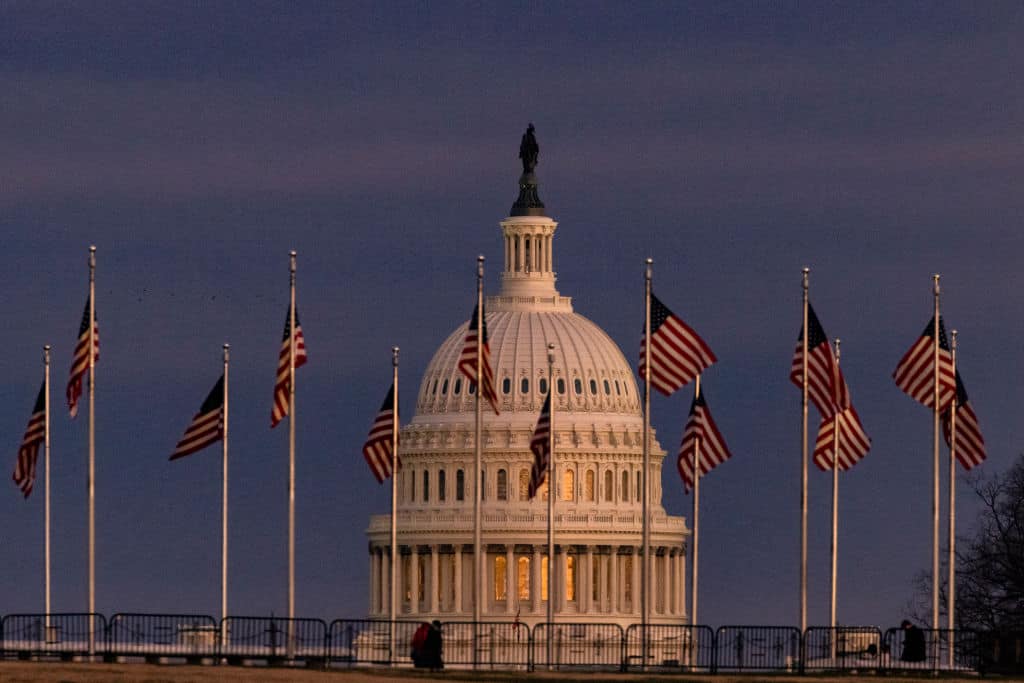
The House late Tuesday approved a Republican budget blueprint for President Trump’s tax-cut and border-security agenda (Reuters, subscription).
- NAM President and CEO Jay Timmons called the move “a historic, pivotal step to[ward] advanc[ing] a comprehensive reconciliation package that will preserve” critical pro-manufacturing tax reforms and unleash “American energy dominance.”
What’s going on: “The measure is a preliminary step to extending Trump’s 2017 tax cuts later this year,” Reuters reports. “Tuesday’s vote sent the budget resolution to the Senate, where Republicans are expected to take it up.”
- The plan—which calls for $4 trillion to $4.5 trillion in tax cuts and $1.5 trillion to $2 trillion in spending reduction over 10 years—also includes measures to increase domestic energy development and production.
Why it’s so important: Congress must capitalize on the momentum of the budget resolution’s passage by preserving the crucial tax reform measures from President Trump’s 2017 Tax Cuts and Jobs Act, Timmons continued—because “[e]very day we wait means jobs and opportunity lost.”
- “As part of the comprehensive, commonsense manufacturing strategy that America needs, protecting tax reform will strengthen our industry and our communities. It’s time to continue this momentum and act now to Make America Great for Manufacturing Again. When manufacturing wins, America wins.”
What’s next: House Speaker Mike Johnson (R-LA) has said he anticipates passing the tax, energy, border-security and defense items via reconciliation by the first week of April.
Tax Reform Keeps Humtown Humming
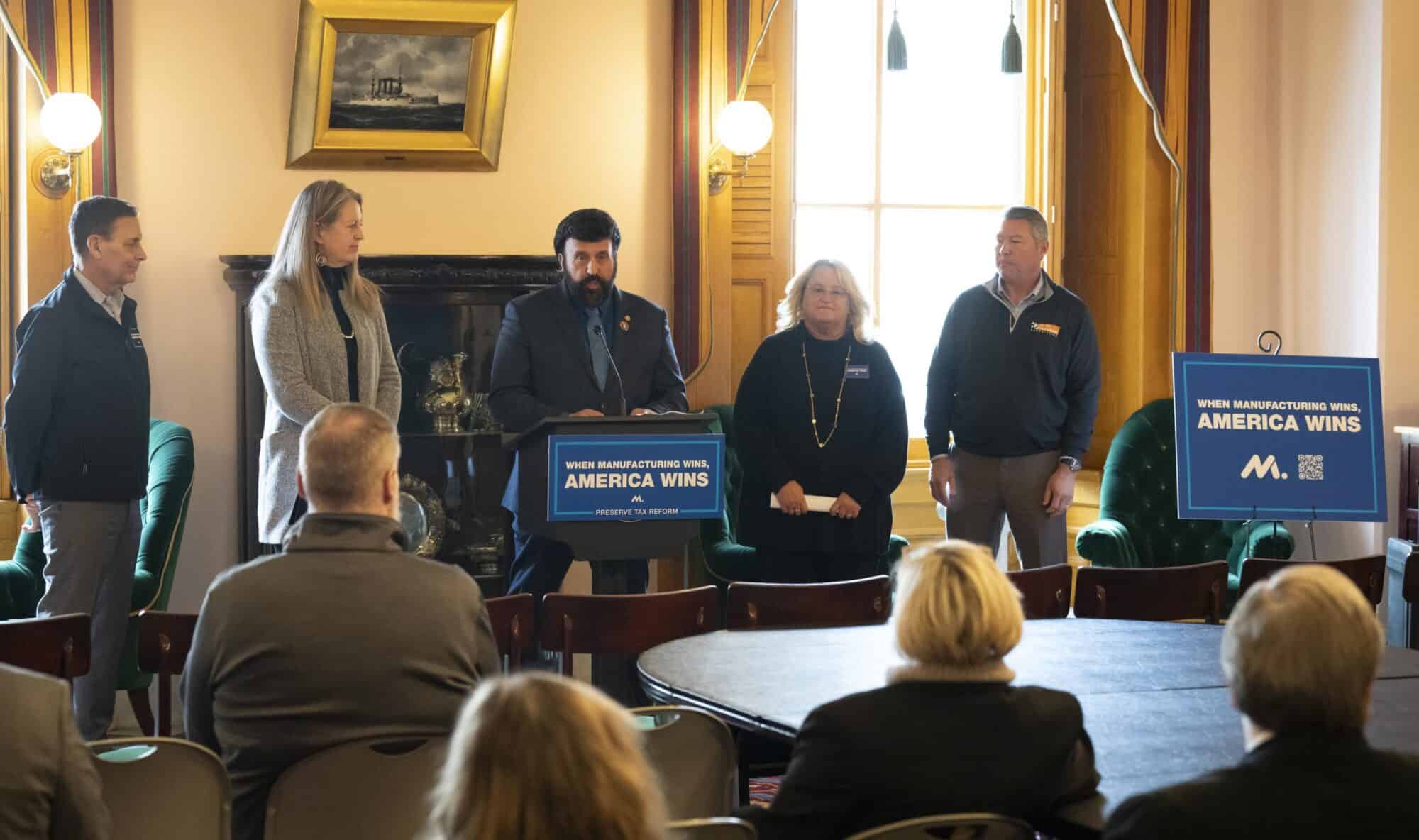
“Humtown is more than just a business. It’s a legacy,” says CEO Mark Lamoncha. The 60-year-old Columbiana, Ohio–based metal casting company has had three generations of Lamoncha leaders, starting with Mark’s father, Russell, who founded it as a small pattern shop in 1959. Today, Humtown is able to keep that legacy alive—and growing—in large part due to tax policies that support innovation, investment and job creation.
The benefits: When tax reform introduced full expensing for capital expenditures and research and development in 2017, Humtown reinvested its tax savings in expanding its operations, hiring more workers and purchasing more equipment, Lamoncha told attendees at an event at the Ohio Statehouse, part of the NAM’s 2025 Competing to Win Tour.
- “Since the 2017 tax reform, Humtown has invested over $9 million in capital expenditures related to 3D printing and averages around $100,000 annually in R&D costs,” said Lamoncha, noting that a single 3D printer can cost upward of $1 million.
- “Under the 2017 tax reform, we were able to deduct 100% of those costs, generating around $1.6 million in accelerated tax savings. That amount alone allowed us to purchase another 3D printer,” he added.
- These investments represent a huge benefit not only to Humtown, but to the larger supply chain it serves. Thanks to 3D-printing toolingless technology, Humtown recently fulfilled an urgent order of essential parts from an EV manufacturer, which traditional tooling would not have produced in time. The result: “Their new product launched 22 weeks ahead of schedule—proving that smart tax investments drive real-world innovation and success,” said Lamoncha.
The threat: As these and other tax provisions get phased out, Humtown is facing a painful increase in costs. Already, it is paying an additional $365,000 in taxes, which is “cutting back on our ability to reinvest in our team, new equipment and our growth plans,” said Lamoncha.
- But the cost for the manufacturing economy is much greater, he pointed out. “Every day Washington delays a tax deal, businesses are forced to second-guess investments, hold back on hiring and rethink expansion plans. For a small or medium-sized manufacturer, that’s the difference between adding a new production line or standing still—and, for some, staying in business.”
The wider community: The threat to tax reform will not only harm Humtown, but prevent it from investing further in partnerships that benefit its entire community.
- Humtown partners with Youngstown State University to educate students in grades 4–12 about 3D printing. The company houses a 3D sand printer purchased through the Ohio Third Frontier Grant program that is used mainly for educational programming.
- In this “hands-on, peer-led learning experience,” students are taught both digital file creation and manufacturing processes, and then lead their peers through the factory as “career ambassadors,” Lamoncha explained. (Watch one 9th grade group’s experience here.)
- Initiatives like these prepare young people for stimulating, high-paying careers in manufacturing, while ensuring manufacturers have enough young workers to keep growing in the decades to come.
The bottom line: “[V]isionary leaders like Jay Timmons and the NAM team are fighting to restore U.S. manufacturing—moving us from just 10% of GDP back to 25% or more. But let me be clear: this won’t happen unless we align state and federal policies to make America the best place in the world to build, create and manufacture,” said Lamoncha.
- “We have the talent. We have the technology. And we have the opportunity. Now, we need the commitment.”
Manufacturers: The Time Is Now to Finish the Job and Preserve President Trump’s 2017 Tax Reforms
Washington, D.C. – NAM President and CEO Jay Timmons released the following statement on the passage of the House budget resolution:
“Today, the House has taken a historic, pivotal step to advance a comprehensive reconciliation package that will preserve President Trump’s job-creating tax reforms of 2017, while also unleashing American energy dominance.
“Manufacturers urge Congress to move with a sense of urgency. Every day we wait means jobs and opportunity lost. As part of the comprehensive, commonsense manufacturing strategy that America needs, protecting tax reform will strengthen our industry and our communities. It’s time to continue this momentum and act now to Make America Great for Manufacturing Again. When manufacturing wins, America wins.”
-NAM-
The National Association of Manufacturers is the largest manufacturing association in the United States, representing small and large manufacturers in every industrial sector and in all 50 states. Manufacturing employs nearly 13 million men and women, contributes $2.93 trillion to the U.S. economy annually and accounts for 53% of private-sector research and development. The NAM is the powerful voice of the manufacturing community and the leading advocate for a policy agenda that helps manufacturers compete in the global economy and create jobs across the United States. For more information about the NAM or to follow us on Twitter and Facebook, please visit www.nam.org.
